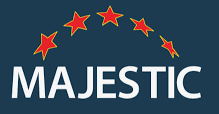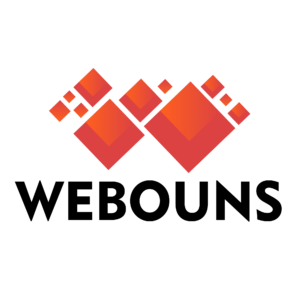Master Off-Page SEO for Ultimate Rankings!
Off-Page SEO is the key to building your website’s authority and trust online. By leveraging high-quality backlinks, strategic partnerships, and social signals, you can boost your search rankings and drive organic traffic. Mastering these techniques ensures your brand stands out, gains credibility, and stays ahead of the competition in the digital landscape.

What is Off-Page SEO?

Off-Page SEO refers to all the actions taken outside your website to improve its search engine rankings. It involves building backlinks, increasing social signals, and establishing a strong online reputation through activities like guest blogging, influencer outreach, and brand mentions. These efforts help search engines see your site as credible and authoritative, ultimately driving more traffic and improving your rankings.
Why Is Off Page SEO Important?
To get Google to like your website, off page SEO optimization is important. When we talk about “off page SEO,” we are talking about actions that take place off of your website yet affect its Google rating. Off-Page SEO is crucial because search engines like Google rely heavily on external signals to determine a site’s authority and relevance. Studies suggest that 75% of ranking factors are off-page, including backlinks, social signals, and brand mentions. Effective off-page strategies can improve rankings, drive organic traffic, and enhance domain authority.
You can visualize this with:
- A pie chart: 75% Off-Page SEO, 25% On-Page SEO.
- Stats like: “Websites with quality backlinks are 3.8x more likely to rank higher.”
- Drives referral traffic
- Broadens reach and awareness
- Provides more data signals
- Complements other efforts
Backlinks not only pass authority and signals of trust, they also have the potential to drive direct visits to your site through click-throughs. This can become a significant source of quality traffic over time.
Getting links and mentions on other sites, especially influential sites or publications in your niche, helps more of your target audience discover your brand and content. This expands your visibility.
External sites linking to your pages gives search engines more signals for understanding topics you cover and determining which queries your content is relevant for. More contextual data enables improved rankings.
While high-quality content, technical SEO, site speed, etc. matter greatly, off-page factors make those other efforts more impactful by lending credibility and sharing your content to bring in users directly. The efforts compound each other.
OFF Page Search Engine Optimization Strategies for Enhanced Website Visibility

Quality Backlinks
Getting solid backlinks from authoritative and reputable websites is an essential off-page SEO tactic. Google interprets links from other high-quality websites as trusted endorsements of your work.

Social Media Presence
Promote yourself actively on social media. Use social media sites like Facebook, Twitter, and Instagram to share your work. Google's website ranking can be positively impacted by social signals.

Content Marketing
Produce good, quality material that can be shared. People are more inclined to link to your content when they find it helpful, which improves off-site search engine optimization.

Guest Posting
Write content for other websites in your industry. This strategy not only helps you obtain useful backlinks but also expands your audience, builds credibility, and strengthens relationships within your niche.

Online Directories
Make sure your company is included in the appropriate internet directories. This improves your website's exposure locally and in search results in addition to generating backlinks.

Influencer Collaborations
Join forces with influential and trusted people in your sector. Influencers can greatly increase your Google exposure, reputation, and credibility by mentioning or linking to your website, boosting traffic, brand awareness.

Engage in Community Forums
Find forums related to your industry or expertise. Register and create a complete, professional user profile. Include a link to your website in your forum signature, ensuring it is relevant and helpful to the community.

Brand Mentions
Keep an eye out for brand references online. Mentions of your brand, even without a link, significantly boost visibility and enhance overall website exposure, driving organic traffic,improving search rankings."
Boost Your Rankings with Off-Page SEO
Backlink Building
Acquiring high-quality backlinks from trusted websites to boost.
Social Media Engagement
Increasing visibility and signals through social media activity.
Guest Posting
Creating content for platforms to build brand recognition.
Brand Mentions
Non-linked mentions of your brand across the web.
Page Speed
Page speed is a critical factor impacting user experience and rankings.
Crawlability
Search engines use crawlers to navigate and index your website's content.
Mobile Friendliness
Mobile-friendly websites are more likely to rank higher in mobile search results.
Domain Authority
Domain Authority reflects a website's credibility and ranking potential.
Off-page Optimization
Off-page optimization refers to all the measures that can be taken outside the website to improve its ranking on search engine result pages. Unlike on-page SEO, it does not deal with the optimization of your site or content itself. So, off-page optimization factors are not in the direct control of the website owner.
Off page optimization is as important as On Page optimization. Without applying off page factors, your website site may not rank as higher as it could be. Off page seo factors such as link building, social media, videos, blogging, etc., are very important for the seo of your website. It helps you get more clicks, more visits, and more exposure on social media. It is a chain of events that occurs one after another. So, it is a long-term process, which is mainly focused on acquiring backlinks to your webpages from social media, authority sites, and social bookmarking.

How to Implement Off-page SEO Strategies
- Setting Goals and Objectives:
- Define clear and specific goals for your off page SEO Optimization efforts. These goals should align with your overall marketing and business objectives.
- Common goals include increasing organic website traffic, improving search engine rankings, generating leads, and driving sales.
- Identifying Target Audience:
- Research and understand your target audience’s needs, preferences, and behaviors. This will help you create content and outreach strategies tailored to resonate with them.
- Use analytics tools, social media data, and market research to gather insights into your target audience.
- Keyword Research:
- Identify relevant keywords and phrases that your target audience is searching for. These keywords should be incorporated into your content, meta tags, and outreach efforts.
- Use keyword research tools, Google Search Console, and competitor analysis to find high-value keywords.
- Creating High-Quality Content:
- Create valuable, engaging, and informative content that resonates with your target audience and addresses their needs.
- Ensure your content is well-written, grammatically correct, and easy to understand.
- Utilize various content formats, such as blog posts, articles, infographics, videos, and podcasts.
- Building Backlinks:
- Backlinks are links from other websites to your website. They are a crucial factor in off-page SEO as they signal to search engines that your website is authoritative and trustworthy.
- Engage in outreach campaigns to acquire backlinks from high-quality, relevant websites.
- Participate in guest posting, broken link building, and directory submissions to earn backlinks.
- Promoting Content on Social Media:
- Share your content on social media platforms to reach a wider audience and generate engagement.
- Encourage your followers to like, share, and comment on your content.
- Use social media analytics to track the performance of your content and fine-tune your strategies.
- Interacting with Influencers:
- Identify and connect with influencers in your industry who can amplify your content and reach a broader audience.
- Offer guest posting opportunities, product reviews, or sponsored content to influencers.
- Engage with influencers on social media and collaborate on content creation.
- Submitting Guest Posts:
- Guest posting involves writing and publishing content on other websites or blogs to earn backlinks and exposure.
- Choose reputable websites with a relevant audience and high domain authority.
- Ensure your guest posts are high-quality, provide value to the readers, and align with the website’s editorial guidelines.
- Participating in Forums and Communities:
- Engage in online forums, communities, and discussion boards related to your niche.
- Provide valuable insights, answer questions, and participate in discussions.
- Subtly promote your website or content when appropriate.
Tools for Off-Page SEO

Ahrefs
For backlink analysis and competitor research.

SEMrush
Offers tools for link building and social media tracking.

BuzzSumo
Helps find influencers and trending content.

Moz
Provides domain authority metrics and building insights.

Majestic
Specializes in backlink analysis and link building.
FAQ'S
What is Off-Page SEO?
Why is Off-Page SEO important?
What are backlinks in Off-Page SEO?
How can I create quality backlinks?
What is the difference between Off-Page and On-Page SEO?
Does social media affect Off-Page SEO?
How long does it take to see results from Off-Page SEO?
Is guest blogging still effective for Off-Page SEO?
What are the common mistakes to avoid in Off-Page SEO?
Can Off-Page SEO work without On-Page SEO?
Boost Your Website's Rankings Today
Take your online presence to the next level with proven Off-Page SEO strategies. Drive more traffic,
improve your search engine rankings, and build your brand’s authority.


